K-Content News
- January 14, 2025 | Music/Immersive Content
How is J-pop Influencing Korean Popular Music?
J-pop is the most influential subculture of music in the Korean popular music scene. J-pop's popularity has contributed to the rise of virtual idols in Korea and increased attention to band music. More importantly, the interaction between J-pop and K-pop is enriching "cultural diversity."
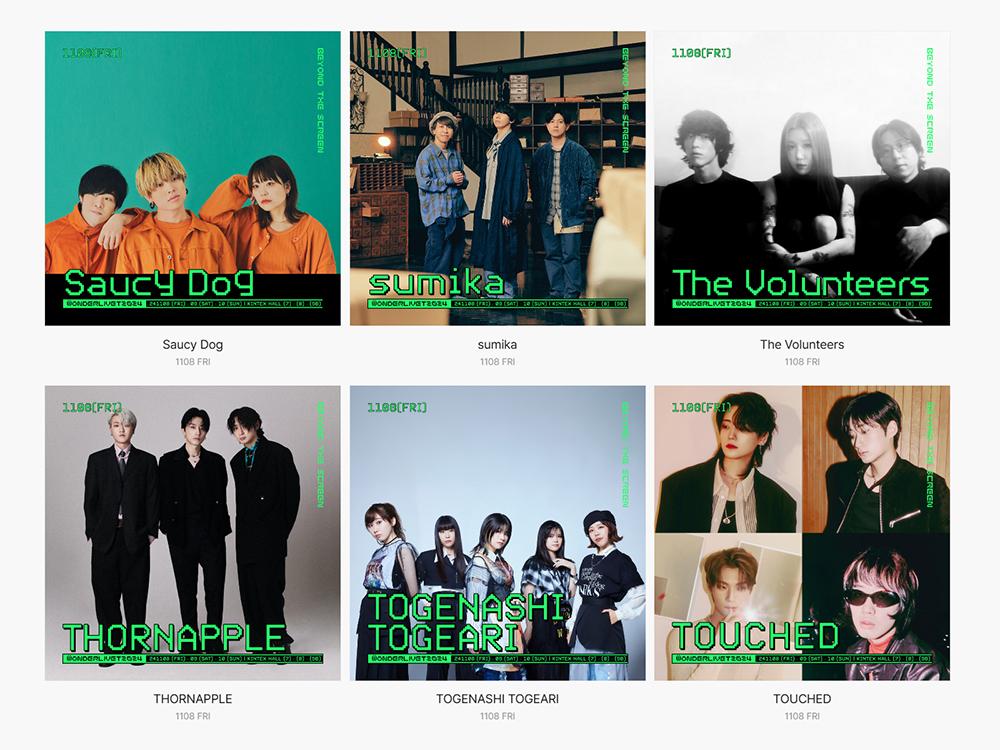
Wonder Rivet 2024 participating artists
Source | Wonder Rivet 2024 website
J-pop Boom Becomes Reality
For me, as a Japanese music enthusiast before being a critic, the scene at "Wonder Rivet 2024" held in the first week of November was a moving experience. A J-pop-centered festival was an unprecedented event never attempted before. The audience shared excitement from this sense of unreality, and I felt a kind of solidarity even with strangers. Responding to this, various participating teams across genres presented distinctive stages, and audiences familiar with Japanese responded with intense reactions that surprised the artists. Thinking about it, some might have come wanting to hear anime tie-up songs directly, while others visited to see heroes of the utaite scene (amateur singers who cover songs and upload to creative platforms or SNS) they've long supported. Someone hoping for a reunion with a band visiting Korea after a long time, or someone seeking to discover new tastes must have been somewhere in the venue. The very fact that all these people confirmed each other's presence as J-pop fans was personally quite meaningful.
Most people there couldn't even imagine such a "J-pop festival" being held in Korea just a few years ago. Back then, it was an atmosphere enjoyed by only a minority, and external views were unfavorable. Even as someone who passionately advocated for "the unique charm of Japanese music" while challenging these biases, I often felt a sense of powerlessness. Then, from two years ago, the situation gradually changed, finally realizing events like "Wonder Rivet 2024." This 'midsummer night's dream' showcasing J-pop boom's reality over three days has settled as a "sustainable reality" by confirming next year's event. It is no exaggeration to say it was a moment when Japanese music fans directly proved this scene's demand to officials from both countries.
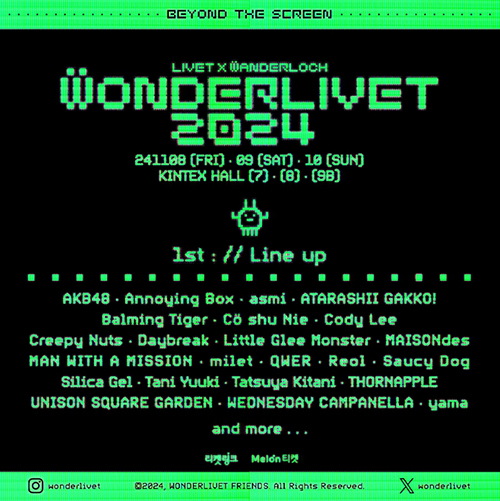
Wonder Rivet 2024 first lineup
Source | @wonderlivet
Various Perspectives on Japanese Music in 2024
This "Japanese music" subculture has rapidly entered the Korean popular music scene over the past 2-3 years. Interest spreading through SNS short-form content since late 2022 first peaked in 2023. YOASOBI's "Idol" topped YouTube Music Korea's weekly chart, powered by the popularity of anime "Oshi no Ko" and K-pop groups' challenge videos, while IMASE's "Night Dancer" became the first J-pop song to enter Melon's Top 100 by capturing social media users' tastes. Anime influence can't be ignored. With the success of "The First Slam Dunk" and "Suzume," TEN-FEET's "Dai Zero Kan" and RADWIMPS' "Suzume (feat. Toaka)" also enjoyed high popularity, with their Korea concerts concluding successfully. Furthermore, this period marked the emergence of dedicated fandoms for artists like Yuuri, Aimyon, and Fujii Kaze, whose music had previously remained under the radar.
The views on Japanese music in 2024 appear to be somewhat split. Journalists who have continuously covered this phenomenon ask me if the bubble has already burst, as it does not seem to have last year's impact. It is true that public achievements this year have been slightly modest compared to last year. Instead, the foundation itself has clearly widened and solidified. This is based on the fact that the overall perceived pie has grown with newcomers finding interest in this subculture and those who quietly enjoyed their tastes revealing themselves. Movements responding to this demand actively developed, making it personally the optimal year for enjoying Japanese music.
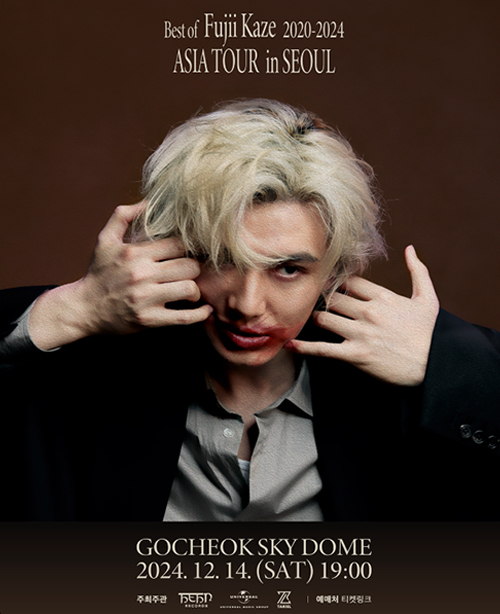
Fujii Kaze concert poster
©Takiel
Enjoying J-pop in Various Forms
One clear indicator of Japanese music’s solidifying presence in Korea is the dramatic increase in concerts by Japanese artists. Over 30 acts have performed in Korea this year alone, and the diversity of performers is particularly noteworthy. It is noteworthy that not only established "names" with ticket power, but also relatively rookie musicians seeking to build narratives in Korea independent of the local market visited en masse, centered on smaller venues. Performance was excellent. Fujii Kaze's Gocheok Dome concert sold almost all tickets, and other solo concerts with thousands of seats also sold out. With OFFICIAL HIGE DANdism and YOASOBI concerts in December, and many people's long-awaited Kenshi Yonezu concert in March, this heat seems likely to continue for a while.
Another key factor in the growing presence of Japanese music in Korea is the rise of J-pop-related influencers. The growth of people providing and sharing information about J-pop overall or specific artists, primarily on Instagram, proves there's no longer a need to hide enjoying Japanese music. Notable accounts include "Yoon-sa's J-POP (yoon_sa_jpop)," "Nahanie (nahanie_jpop)," and "Track J-POP (track_jpop)." They actively share the latest Korean concert news and reviews, continuously create short-form content recommending tracks, and solidify the field's community while helping attract new supporters. Through these elements, J-pop, once considered "unusual or niche music," is gradually settling as a universal and natural choice for the public, like Anglo-American pop.
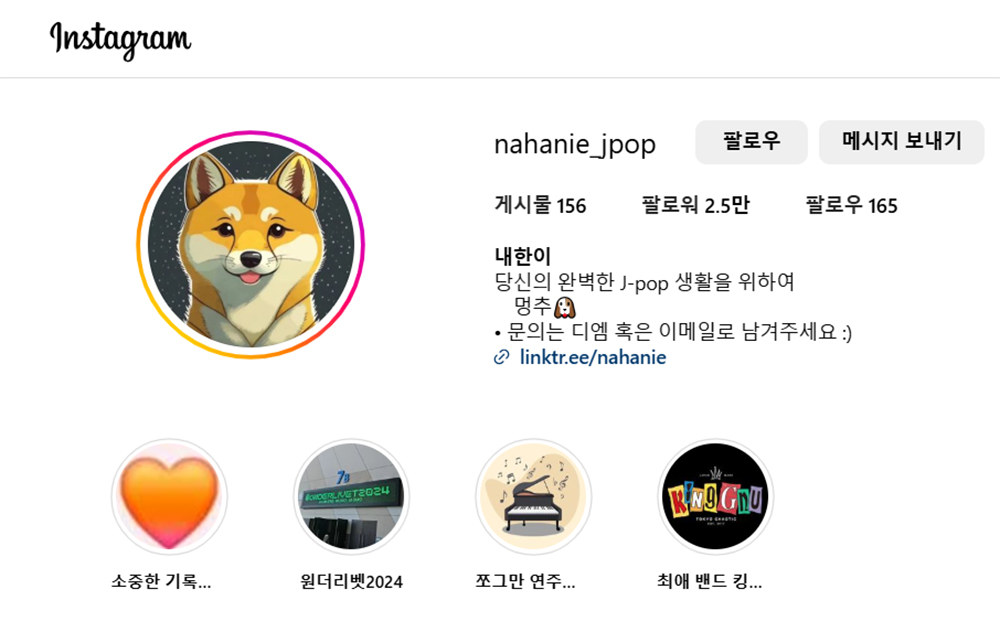
J-pop related influencer 'Nahanie'
Source | @nahanie_jpop
J-pop Enhancing Korean Popular Music's Diversity
This flow significantly influences the Korean popular music scene. While difficult to attribute entirely to Japanese music's influence, it has played a role in trends like the resurgence of band music and the growing popularity of songs with clear melodies and a traditional beginning-middle-end structure. Through (G)I-DLE's "Fate" reverse-climbing charts and the band boom centered around DAY6, QWER, and various indie teams, we can indirectly confirm that J-pop has become more familiar to some 10-20s, K-pop's main consumer base.
The presence of Japanese artists in Korean music festival lineups has grown significantly. From Pentaport Rock Festival and Busan International Rock Festival to "Loud Bridge," emphasizing Korean-Japanese band exchange, "Asian Pop Festival," conceptualizing Asia's diverse music, and the aforementioned "Wonder Rivet 2024," Japanese artists serve as bridgeheads for securing diversity while achieving the double effect of attracting those without festival experience. This momentum indicates that industry insiders are already sensing the increasing influence of Japanese artists within the Korean performance market.
Additionally, as subculture scenes centered on online communities linked to Vocaloid (voice synthesis engine software and characters developed by Japan's Yamaha Corporation), utaite, and virtual YouTubers are driving innovation in the idol industry. These trends have spurred the creation of unique idol forms like ISEGYE IDOL and PLAV. PLAV, promoting themselves as virtual idols, recently proved fandom power no less than any "real boy group" through two-day solo concerts at Jamsil Area. Based on Generation Z's cultural consumption tendencies seeking "tastes" regardless of nationality and language in the SNS era, K-pop and J-pop are narrowing their distance through intense interactions.
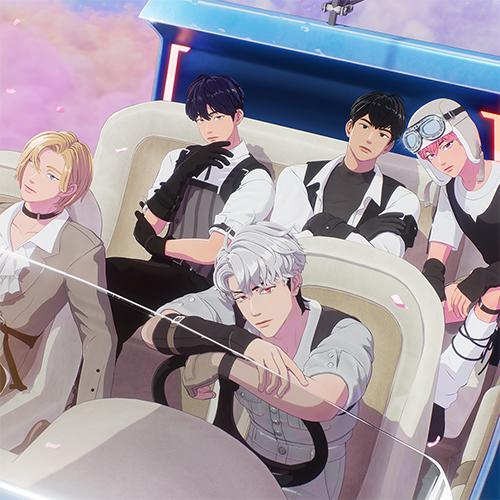
Virtual idol 'PLAV'
©BLAST
Good News for Producers Seeking Novelty
Personally, I find this situation quite welcoming. After all, Korea is a country with a relatively strong cultural concentration. Even the J-pop boom mentioned here might partly result from public fatigue with K-pop dominance. As subcultures like J-pop gain influence, more people begin seeking alternatives, naturally steering towards a richer cultural diversity. This returns as interest in numerous musicians struggling in music fields other than K-pop, and we can expect producers to become interested in building differentiated content and creating unprecedented things. As those weary of the current popular music scene search for alternatives—reflected in the growing popularity of Japanese music—will efforts by planners and producers to meet these evolving demands intensify even further?
While the future of Japanese music’s momentum in Korea remains uncertain next year. While personally experiencing an incredibly abundant year, I am also mindful of the possibility it could fade at once, having come so intensely at once. Nevertheless, if some people discovered new interests during these years or were able to enjoy more fulfilling cultural experiences, would that not hold significant meaning on its own?
The J-pop boom underscores the importance of cultural diversity. In a way, mainstream culture is born through constant interaction with subcultures. An environment where the proposition "I do not like music" can lead to the realization "I just had not discovered music I like." Through the growing appreciation of Japanese music in Korea’s popular music scene, we are reminded of the value of sharing and respecting different tastes. It reinforces the idea that a truly inclusive popular culture market—one where no one feels left out—can emerge from this process of mutual exchange and understanding.
Written by Hwang Sun-up (Popular Music Critic)
Original article URL: https://www.kocca.kr/n_content/kocca_vol34/vol34/10.html
